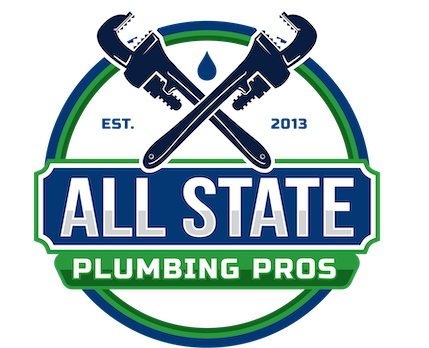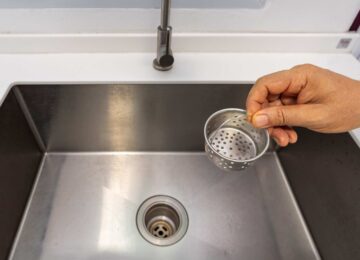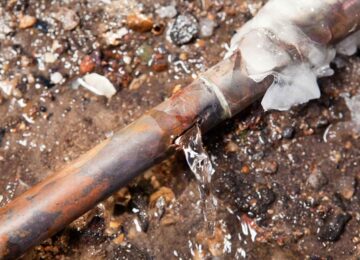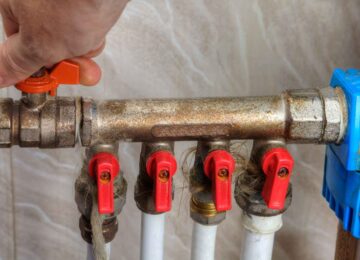Every home depends on a reliable plumbing system, yet many homeowners overlook routine care until costly issues appear. Using a plumbing maintenance checklist helps you catch hidden leaks, reduce the risk of water damage, and avoid unexpected repairs through preventative maintenance. It’s important to maintain the entire home’s plumbing system, including pipes, fixtures, and key components, to ensure everything functions smoothly. Creating a detailed plumbing map of your home’s plumbing system can also provide easy access to key components during maintenance, repairs, or emergencies.
In Fairfield County, CT, and Westchester County, NY, the need for preventive maintenance is even greater. Freezing winters can cause pipes to burst, while aging plumbing in older homes often requires extra attention. Following a seasonal checklist ensures these risks are managed before they escalate into emergencies.
For complete peace of mind, All State Plumbing Pros provides professional plumbing maintenance services for both homes and businesses. Commercial buildings require specialized maintenance and inspections due to their complexity and size. From inspections and water heater tune-ups to 24/7 emergency response, our licensed team is ready to protect your property in Fairfield County and Westchester County.
Why Plumbing Maintenance Matters
Plumbing maintenance isn’t just about convenience; it’s about protecting your home. The EPA estimates that household leaks waste more than 10,000 gallons of water each year, often driving up utility bills without homeowners realizing it. Preventive maintenance helps identify these hidden leaks, detect corrosion, and catch low water pressure, common plumbing issues that can escalate into major plumbing problems if not addressed.
Regular maintenance also supports a healthy environment. Standing water, faulty valves, and clogged drains can lead to mold growth or sewer backups, both of which are health hazards. Water leakage is a critical sign of plumbing problems, often indicating underlying issues that require prompt attention to prevent further damage. By keeping your system in good shape, you not only extend its lifespan but also create a safer home for your family.
All State Plumbing Pros specializes in full-system inspections, water heater service, drain cleaning, and well pump maintenance. These professional services go beyond what you can do on your own, and professionals document inspection findings to ensure all plumbing issues are identified and addressed. This gives you the confidence that your plumbing system is performing at its best.
How Often Should You Inspect Your Plumbing?
Homeowners should perform plumbing inspections on their plumbing systems monthly as part of their routine maintenance and schedule professional inspections at least once a year. In older homes around Danbury, Ridgefield, or Yonkers, semi-annual professional checkups may be needed due to aging pipes and outdated fixtures.
A professional inspection includes testing water pressure with a pressure gauge, inspecting visible pipes for corrosion, checking drains for blockages or slow drainage, flushing the water heater, and checking sump pumps or sewer lines. By combining simple monthly checks with annual visits from a licensed plumber, you’ll prevent costly emergencies and extend the life of your plumbing system.
Monthly Plumbing Maintenance Checklist
A monthly plumbing maintenance checklist ensures you stay proactive and prevents minor issues from turning into major problems.
Key tasks to complete each month include:
- Check faucets, toilets, and under-sink pipes for leaks. Even a small drip can waste hundreds of gallons over time and cause water damage to cabinets or floors.
- Inspect the kitchen sink and clean the kitchen sink drain regularly to prevent clogs and leaks.
- Test water pressure with a gauge. Safe residential water pressure is between 40–80 PSI. If it’s lower, you may have a supply problem or a clog. If it’s higher, it can damage fixtures and requires a pressure regulator.
- Clear slow drains. Avoid harsh chemicals; instead, use natural solutions like baking soda and hot water. Persistent slow drains may indicate larger blockages that need professional attention, and neglecting them can lead to clogged pipes.
- Check and clean sink drains, shower drains, and floor drains to prevent buildup and ensure proper drainage.
- Test the garbage disposal for proper operation and inspect for leaks or unusual noises. Regularly maintain garbage disposals to avoid clogs.
- Inspect shut-off valves. Make sure individual fixture shut-offs and your main shut-off valve turn easily and aren’t corroded. In an emergency, fast shut-off access can limit damage.
If you notice leaks, water pressure outside the safe range, or drains that continue to back up, call All State Plumbing Pros for immediate service in Fairfield County, CT.
Seasonal Plumbing Maintenance Checklist
Seasonal changes require adjustments to protect your home’s plumbing. Here’s a checklist broken down by season:
| Season | Tasks | Why It Matters | DIY or Pro |
|---|---|---|---|
| Spring | Inspect sump pump and sump pit; check outdoor faucets for leaks and ensure the water supply to outdoor fixtures is secure and free of contamination; inspect the septic system for signs of overflow or needed pumping; schedule a sewer line inspection to check for blockages or tree roots. | Prevent basement flooding from snowmelt or heavy rain; avoid septic and sewer issues; maintain a safe water supply. | DIY/Pro |
| Summer | Flush the water heater; inspect the irrigation system and outdoor spigots and test all irrigation systems for leaks or malfunctions; check the water heater temperature and pressure relief valve for safety; clean shower heads and faucet aerators to remove calcium buildup and maintain water flow. | Remove sediment buildup, ensure safe water temperature, maintain water flow efficiency, and avoid excess stress on pipes. | Pro |
| Fall | Disconnect hoses; insulate outdoor pipes and spigots; clean gutters; inspect the toilet tank and fill valve for leaks or wear. | Prevent freezing damage during cold weather and avoid toilet leaks. | DIY |
| Winter | Check for frozen pipes; monitor water heater performance; inspect the boiler; inspect the toilet tank and fill valve for leaks or wear. | Protect against pipe bursting, heating failures, and toilet issues. | Pro |
In Connecticut and New York, freezing temperatures make fall and winter maintenance particularly important. A burst pipe can release hundreds of gallons in just a few minutes. Proper insulation and seasonal inspections are the best defenses.
Annual Plumbing Maintenance Checklist
Annual maintenance should include professional inspections and deep servicing that most homeowners cannot complete themselves.
Essential annual tasks:
- Flush your water heater. Sediment buildup reduces efficiency and can cause strange noises or failure. A professional plumber can also check the anode rod and pressure relief valve.
- Inspect sewer lines. Sewer backups can be devastating. Video inspections help detect tree root intrusion or blockages early, and inspecting the entire sewer system ensures proper function and maintenance documentation.
- Full-system inspection. A licensed plumber will check all visible pipes, test water flow, review plumbing fixtures, and look for hidden leaks, including checking for signs of water leakage throughout the home.
Be sure to document all inspection findings to track maintenance, repairs, and ensure compliance for future reference.
Schedule your annual plumbing inspection with All State Plumbing Pros to keep your home in Fairfield County or Westchester County protected year-round.
Commercial Plumbing Maintenance Checklist
Commercial plumbing maintenance requires more frequent and detailed inspections due to higher usage. Restaurants, office buildings, and apartment complexes need quarterly service to ensure optimal performance and minimize plumbing problems in commercial buildings.
Key commercial maintenance items include:
- Backflow prevention testing.
- Grease trap cleaning in the commercial kitchen and regular maintenance of kitchen fixtures.
- Drain system inspections for heavy-use restrooms, including sink drains.
- Boiler and water heater servicing for large buildings.
All State Plumbing Pros provides customized commercial plumbing maintenance programs for property managers and businesses throughout Westchester County, NY.
What To Do if You Find a Problem During Maintenance
Discovering a leak, unusual water pressure, or slow drainage doesn’t always mean disaster, but quick action makes all the difference to help prevent water damage.
Steps to take immediately:
- Shut off the water at the main valve if you see water pooling or a major leak.
- Contain water with towels or buckets until help arrives.
- If you smell gas, evacuate the home and call your utility company.
- Call a licensed plumber for emergency repairs, especially if you notice drains that continue to back up, as this could indicate clogged pipes requiring immediate attention.
By following these steps, you can minimize damage before professional help arrives.
Conclusion
A well-structured plumbing maintenance checklist protects your home from water damage, costly repairs, and unnecessary stress. From monthly leak checks to annual professional inspections, consistent attention keeps your plumbing system running smoothly.
All State Plumbing Pros proudly serves Fairfield County, CT, and Westchester County, NY with licensed 24/7 plumbing services, seasonal maintenance, and commercial programs. Call us today to schedule an inspection or request emergency service.
FAQs
How to perform maintenance on plumbing?
Regular maintenance includes checking for leaks, testing water pressure, cleaning faucet aerators, cleaning the shower head to remove calcium buildup, inspecting the fill valve and toilet tank for leaks or wear, and flushing the water heater once a year. A professional plumber can also inspect pipes, drains, and valves to keep your plumbing system in optimal condition.
What are the 5 main items you should inspect for at a drain detail?
Inspect for slow drainage, water pooling, unpleasant odors, corrosion or loose drain connections, and signs of clogs from grease, soap, or debris. Be sure to check sink drains, shower drains, and floor drains specifically, as neglecting these inspections can lead to clogged pipes. Addressing these early helps avoid costly repairs and water damage.
What is plumbing maintenance?
Plumbing maintenance is the process of inspecting, cleaning, and servicing the entire home’s plumbing system, including the water supply, to prevent breakdowns. It includes checking visible pipes, testing water flow, clearing drains, maintaining water heaters, and scheduling regular inspections with a licensed plumber.
What is preventive maintenance in plumbing?
Preventive plumbing maintenance means performing regular inspections and upkeep before issues occur. By documenting inspection findings, you can track issues, ensure maintenance compliance, and improve future maintenance processes. This proactive approach reduces the risk of hidden leaks, pipe bursts, and major damage, helping to prevent water damage and ensuring your plumbing system performs reliably and efficiently.

![Plumbing Maintenance Checklist: Essential Tasks for Every Home Every home depends on a reliable plumbing system, yet many homeowners overlook routine care until costly issues appear. Using a plumbing maintenance checklist helps you catch hidden leaks, reduce the risk of water damage, and avoid unexpected repairs through preventative maintenance. It’s important to maintain the entire home’s plumbing system, including pipes, fixtures, and key […]](https://allstateplumbingct.com/wp-content/uploads/2025/10/plumbing-maintenance-checklist-750x420.jpg)



Leave a Reply